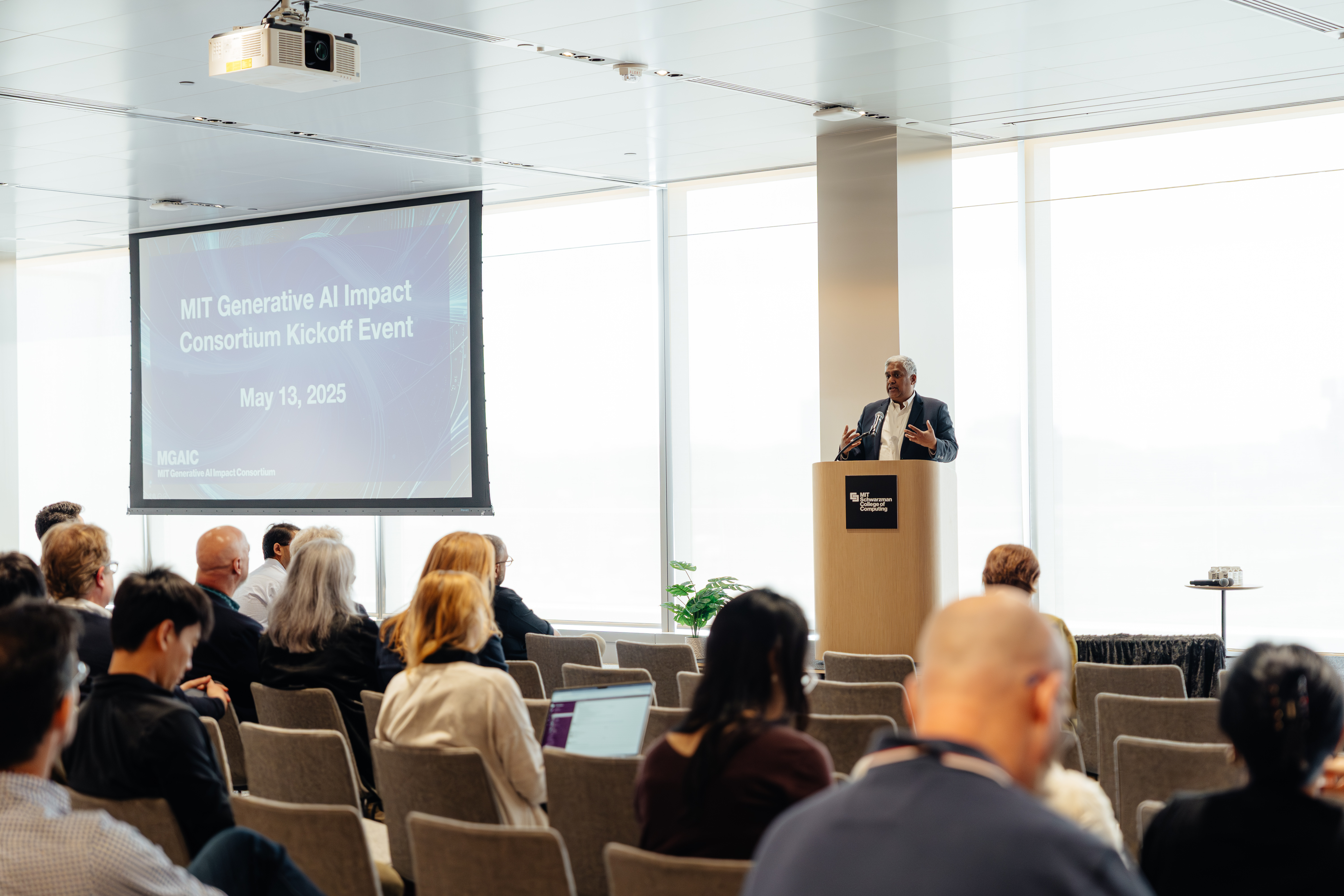
Launched in February of this year, the MIT Generative AI Impact Consortium (MGAIC), a presidential initiative led by MIT’s Office of Innovation and Strategy and administered by the MIT Stephen A. Schwarzman College of Computing, issued a call for proposals, inviting researchers from across MIT to submit ideas for innovative projects studying high-impact uses of generative AI models.
The call received 180 submissions from nearly 250 faculty members, spanning all of MIT’s five schools and the college. The overwhelming response across the Institute exemplifies the growing interest in AI and follows in the wake of MIT’s Generative AI Week and call for impact papers. Fifty-five proposals were selected for MGAIC’s inaugural seed grants, with several more selected to be funded by the consortium’s founding company members.
Over 30 funding recipients presented their proposals to the greater MIT community at a kickoff event on May 13. Anantha P. Chandrakasan, chief innovation and strategy officer and dean of the School of Engineering who is head of the consortium, welcomed the attendees and thanked the consortium’s founding industry members.
“The amazing response to our call for proposals is an incredible testament to the energy and creativity that MGAIC has sparked at MIT. We are especially grateful to our founding members, whose support and vision helped bring this endeavor to life,” adds Chandrakasan. “One of the things that has been most remarkable about MGAIC is that this is a truly cross-Institute initiative. Deans from all five schools and the college collaborated in shaping and implementing it.”
Vivek F. Farias, the Patrick J. McGovern (1959) Professor at the MIT Sloan School of Management and co-faculty director of the consortium with Tim Kraska, associate professor of electrical engineering and computer science in the MIT Computer Science and Artificial Intelligence Laboratory (CSAIL), emceed the afternoon of five-minute lightning presentations.
Presentation highlights include:
“AI-Driven Tutors and Open Datasets for Early Literacy Education,” presented by Ola Ozernov-Palchik, a research scientist at the McGovern Institute for Brain Research, proposed a refinement for AI-tutors for pK-7 students to potentially decrease literacy disparities.
“Developing jam_bots: Real-Time Collaborative Agents for Live Human-AI Musical Improvisation,” presented by Anna Huang, assistant professor of music and assistant professor of electrical engineering and computer science, and Joe Paradiso, the Alexander W. Dreyfoos (1954) Professor in Media Arts and Sciences at the MIT Media Lab, aims to enhance human-AI musical collaboration in real-time for live concert improvisation.
“GENIUS: GENerative Intelligence for Urban Sustainability,” presented by Norhan Bayomi, a postdoc at the MIT Environmental Solutions Initiative and a research assistant in the Urban Metabolism Group, which aims to address the critical gap of a standardized approach in evaluating and benchmarking cities’ climate policies.
Georgia Perakis, the John C Head III Dean (Interim) of the MIT Sloan School of Management and professor of operations management, operations research, and statistics, who serves as co-chair of the GenAI Dean’s oversight group with Dan Huttenlocher, dean of the MIT Schwarzman College of Computing, ended the event with closing remarks that emphasized “the readiness and eagerness of our community to lead in this space.”
“This is only the beginning,” he continued. “We are at the front edge of a historic moment — one where MIT has the opportunity, and the responsibility, to shape the future of generative AI with purpose, with excellence, and with care.”

